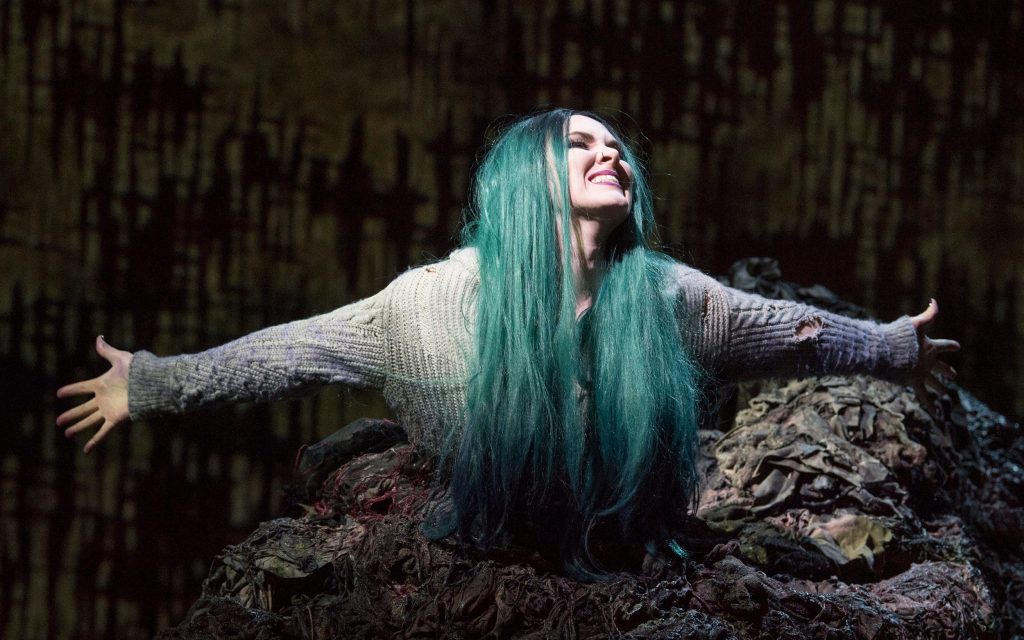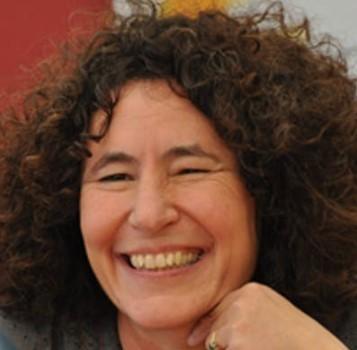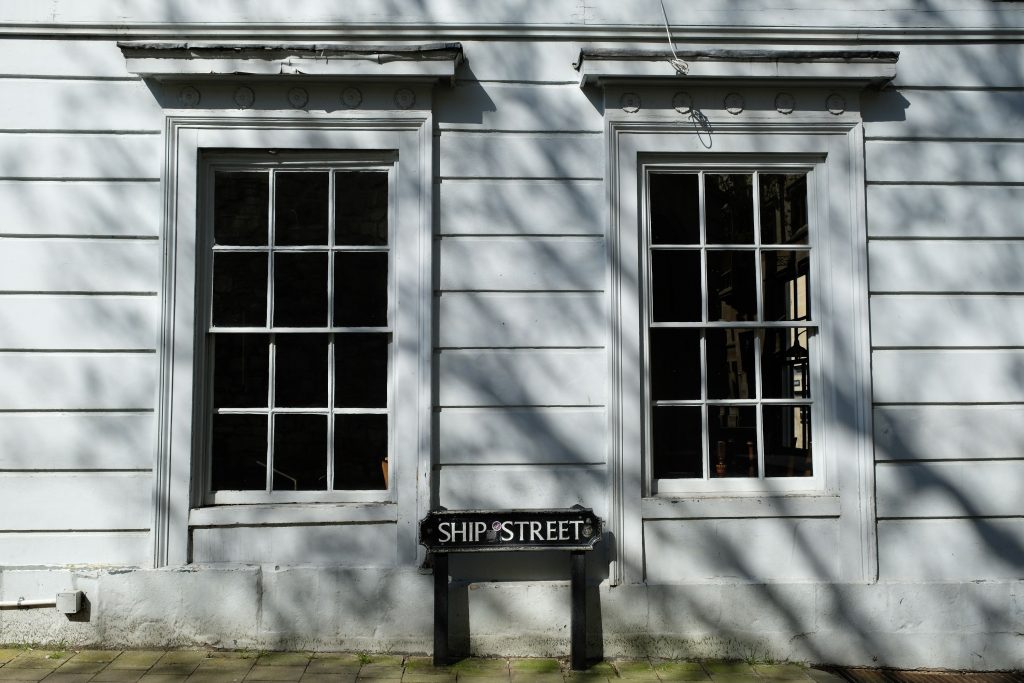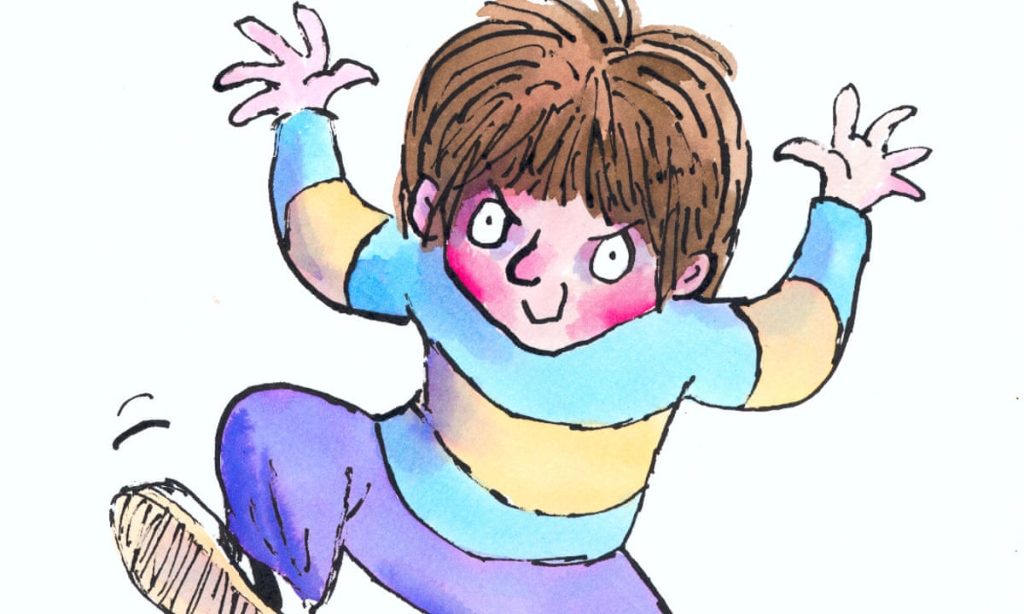Francesca Simon read English at Jesus College, matriculating in 1977. A medievalist and one-time freelance journalist, she is perhaps best known as the author of the award-winning Horrid Henry series of books for children (and greatly enjoyed by adults too).
She has published a range of other books for early readers and older children, including The Lost Gods, The Sleeping Army, Two Terrible Vikings, Helping Hercules, and The Monstrous Child, which she adapted for opera in collaboration with composer Gavin Higgins and was performed during the 2018/19 winter season at the Royal Opera House. In this interview, first published in the summer edition of Jesus News, Francesca tells us about her life, career and memories of Jesus College.
You were born and raised in the US, tell us a little about your childhood and early education
I had a peripatetic childhood, and attended 10 schools, in New York, London, Paris and Los Angeles. My father is a screenwriter and was writing Judy Garland’s last film (I Could Go On Singing) which took us to London and then Paris, where I learned to speak French. When I was eight, we moved to Malibu where I lived for six years. I love the beach and the sea, but I prefer living in Europe.
Your tertiary education took you to Yale and then Jesus College. How important was your time at Jesus, and how do you think your Oxford experience shaped you?
When you tell an American you are going to Oxford, it’s like saying you are going to heaven. I’ll be honest and say that Oxford in the late 1970s wasn’t heavenly. I was shocked by how conservative it was, and how homogenous the students were – mostly privately educated, middle and upper class, barely a black or Asian face to be seen. I felt in some ways that I was attending a finishing school, where students aspired to be exactly like their parents as soon as possible. There was also a distinctly anti-intellectual attitude. At Yale, everyone bragged about how much work they were doing. At Oxford, everyone bragged about how little work they did. No one wanted to talk about their subject, either; it felt like a taboo and bad form. There were huge social hurdles to overcome. I had trouble reading people and couldn’t tell if people considered me a friend or not. I discovered that British people are more cautious about friendship, in a way that Americans aren’t.
I also had to learn that inviting someone to tea, and not lunch, was the most casual invite. And that people thought nothing of spending a fortune on drink, but kept their rooms unheated to save money. That said, I never planned to stay in the UK after Oxford, and yet here I am, so attending a finishing school turned out to be quite helpful professionally as well as personally. I have lots of dear friends from my Oxford days, including one of my publishers, Andrew Franklin (Profile books). Oxford made me AngloAmerican, and enabled me to straddle both worlds. I found my course very difficult (Old and Middle English language and literature) as it was so philologically-based, and I am much stronger on literature. I was saved by Professor Eric Stanley, the Rawlinson and Bosworth Professor of Old English who had taught me at Yale, who let me audit his graduate seminars and gave me extra tutorials. Eric and I stayed friends until his death at 94 in 2018, and I miss him to this day.
Any fond (or otherwise) memories of Jesus?
A key reason I chose Jesus was that it was one of only five mixed colleges. But when I arrived I was given rooms on Ship Street, where seven other Jesus girls lodged, and it was like being hurled back to the 1950s, as the two puritanical scouts who lived on the ground floor enforced their own strict rules, utterly at odds with College rules. I was actually reported to the Dean for having a man in my room (an American friend who was visiting).
The Dean refused to budge about this unfairness (‘It’s not Yale or Berkeley here’), and for a time I considered leaving Oxford, as the attention to my morals seemed to far outweigh the attention to my academics. Francine Stock was also in the nunnery, and I know she agrees with me that our oppressive living arrangements blighted our first year. I did like my knotted rope fire escape, however. And learning to eat a three-course meal in 22 minutes, and not sitting in Hall where a certain scout always splashed soup on you. And I adored the beautiful buildings – for someone who loves medieval studies, it was like stepping back in time.
You describe yourself as a ‘medievalist’: tell us more.
I studied Medieval Art and Literature at Yale, and for a while I considered doing a PhD in the subject. I love the Middle Ages, especially gothic architecture, and I have huge sympathy for the urge to bring order out of chaos, with everyone in their little niche. I also love alliteration, which obviously influences my writing. And Horrid Henry, stripped down to basics, is an alliterative collection of archetypes and humours. There would have been no Horrid Henry if I hadn’t studied Anglo-Saxon and the Middle Ages.
What/who do you read and why?
A better question would be, what DON’T I read? I’m pretty broad in my taste, but my favourites are Victorian novels, especially Anthony Trollope, who taught me most of what I understand about British society. I also love modern fiction (Bernardine Evaristo, Amanda Craig, Maggie O’Farrell), and loads of children’s books for all ages. I have always been a compulsive reader, and I don’t like being anywhere without a book. That said, lockdown has made concentration harder, so I have found myself reading a lot of newspapers (Washington Post, Guardian) and some non-fiction, especially about early American history. I’m a huge fan of Yale history professor (and Hamilton specialist) Dr Joanne Freeman, and attend a weekly online American history seminar she hosts every Friday afternoon. I hate reading books online and much prefer print, but I do read articles online.
The inevitable one: who was the inspiration for Horrid Henry and also Perfect Peter, or are they alter egos?
The simple answer is I wanted to write comic stories about families where there was a good child and a bad child (i.e. every family). There was no specific person who inspired the stories, apart from myself: I was perfectly behaved at school and less so at home. I also realised a few years after I started writing the books that Horrid Henry and Perfect Peter are two sides of everyone: the desire to be good and to conform; the desire to disrupt and go your own way. On one level their sibling rivalry has been going on since Cain and Abel; it’s also cathartic to read about a character who never thinks about consequences but lives entirely in the moment. Essentially, the books are westerns for kids. Horrid Henry is the outlaw we all secretly root for.
The Horrid Henry series is enjoyed by both children and adults alike. When writing the Henry books, do you consider your adult audience too?
Always! I read to my son until he was 11, and I think shared books that both parents and children enjoy are supremely important.
Your collaboration with Gavin Higgins on The Monstrous Child opera was innovative and well received, and another way of delivering a children’s story to an adult audience. How did that come about?
This story is almost too good to be true: writer gets first opera commissioned and performed at the Royal Opera House, Covent Garden, to rave reviews. But it really did happen. While I was writing my young adult novel, The Monstrous Child, about Hel, the Norse goddess of the dead, as an angry, funny teenager, it struck me that this was a very operatic subject. Even though I knew almost nothing about opera. But I knew opera was about big emotions: love, hate, death, jealousy, passion, revenge, which all featured rather prominently in my book.

A scene from The Monstrous Child – an opera based on Francesca’s book of the same name and composed by Gavin Higgins.
Two years earlier I’d had a chance encounter with John Fulljames, then associate artistic director of the ROH, and, as it turned out, a big Horrid Henry fan. He gave me his email and said I should get in touch, if I ever had an idea for an opera. I thought the chances of that were as likely as becoming a football commentator, but I kept his details. I knew the composer Gavin Higgins socially, and was a big fan of his music, so I sent him the manuscript and asked what he thought. He loved the novel, and said he’d love to compose an opera based on it. We approached the Royal Opera House together, and they commissioned us almost immediately. It was quite a fairy tale, and definitely the best creative experience of my life. I fell in love with opera, and also with collaborating, which I didn’t expect. Gavin and I love working together, and have since written a cantata for two singers which will premiere in 2022. We are also hoping to create another opera with our wonderful director, Tim Sheader.
How do you view social media, both as an author and a consumer? Is it a valuable tool or just a necessary evil?
I don’t particularly enjoy being my own publicity department, but I do enjoy Twitter as a way of praising books and authors I’ve enjoyed, and keeping up with politics. It’s lovely to tweet at an author you don’t know, especially new authors, to say how much you’ve liked their book. What I think is reprehensible are twitter pile-ons, when self-righteous people decide to hurl abuse and threaten violence to those who disagree with them, or who hold opinions they dislike. This has happened to two writers I know, who’ve left Twitter because of it. But Twitter can also be an excellent place to share ideas, and to connect with people.
What’s next for you?
I’m writing a new funny series for young readers set in the Viking age called Two Terrible Vikings, about riotous Viking twins Hack and Whack and their gang of friends: Twisty Pants the braggart, Dirty Ulf who hates baths, and Elsa GoldHair, the village goody-goody who likes to share. And because they are young Vikings, they can steal boats, run away to raid neighbouring islands, track trolls and rampage in the forest. I’m also hoping to write another opera.



